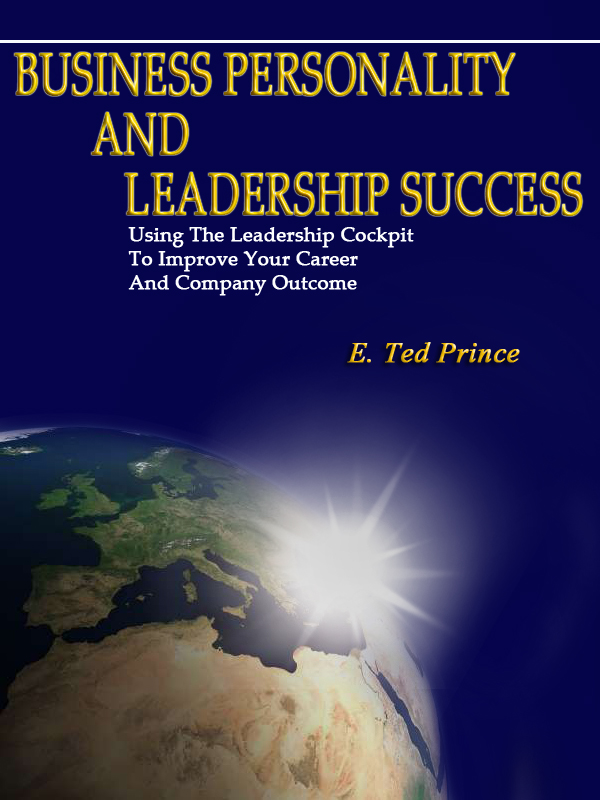Perth Research on Financial Signature®
Perth operates a vigorous and continuing research program based on its own fieldwork, work with clients, and analysis of the data that emerges from both client assignments, assessment results and its ongoing research into behavioral finance. Perth's products are all based on its proprietary and original research. As a result, Perth has a continuing pipeline of new products and services which are cutting edge and are defining new pathways for leadership and exexcutive development.
Perth's original research is also reflected in its numerous publications in both professional and academic journals. It is also reflected in its White Paper series on emerging issues and trends in the industry and the contributions that Perth is making to thinking in these areas.
The concepts and basic research underlying Perth's Leadership Outcome Model™ (PLOM) have been developed over the past 15 years. The formal field studies and research underlying the Perth assessments date from 2001 and have been conducted continuously since that time.
(PLOM) have been developed over the past 15 years. The formal field studies and research underlying the Perth assessments date from 2001 and have been conducted continuously since that time.
Over that time the Perth Leadership Institute has conducted research to identify and validate the traits and behaviors of executives that are related to their impact on the financial performance and valuation of the enterprises in which they work.
Research Design
The research was conducted in five stages:
Stage 1 Research and Interviews with CEOs
The researchers interviewed and selected a group of almost 200 CEOs. Of this group, a subset of 127 CEOs was used as the basis for the final database since there was inadequate information on the full sample. This database was used as the basis for the development of formal hypotheses and for statistical analysis of the Perth model.
Stage 2 Research on Well-Known CEOs
A group of 60 well-known CEOs was selected on whom there was extensive public information and written materials, both on their personal traits and their financial performance. This group was used to populate a database to further refine the hypotheses and to conduct further statistical analysis.
Stage 3 Development of Assessment Instruments
The research results from Stages 1 and 2 were used to build several assessments that could link the personal financial traits of executives to the financial outcome of their organizations.
Stage 4 Field Testing of Assessment Instruments
A new set of 48 CEOs and senior executives was used to test, refine and enhance the assessment instruments. This took place over a period of some 3 years.
Stage 5 Customer Testing of Instruments
To conduct, predict and validate the concepts, two field studies were conducted -- (Study 1) the top 35 executives of a $480 million, company and (Study 2) a new set of 21 practicing or retired CEOs and top executives.
Research Results
The assessment model and instruments developed by Perth proved to have high levels of testing reliability. The research results are:
The variables used to determine a leadership style were independent across modes
- The variables used to determine a leadership style were independent of each other
- The variables used to determine a Financial Signature® were independent variables.
- The variables used to determine corporate Financial Signature™ (the perceived financial culture of a company) were not influenced by the personal Financial Signature® of the test subjects
- The corporate Financial Signature® as perceived by the test subjects was no different than the aggregate Financial Signature™ of the test subjects, showing that they accurately reported the Financial Signature™ of the enterprise.
- The variables used to determine leadership style and valuation impact behaviors as defined by Perth's Leadership Outcome Model™ (PLOM) were independent of each other
Validation of Model Constructs
The assessment model and instruments developed by Perth predicted with high accuracy the executive style of the subjects, the Financial Signatures® of the subject, and the valuation trajectory of the enterprise. The research results were:
- Predicted the executive type of the subject as verified by individual interviews, and third-party confirmation e.g. other company senior executives, and:
- Predicted the Financial Signature® of the subjects, as verified by third-parties e.g. other company senior executives.
Validation of Relationship with Outcome
The key hypothesis of the Perth research is that executive behavior and personal financial traits are significantly associated with valuation and financial impact and enterprise outcome. In the CEO database, enterprise outcome was represented by the variables, assessed profitability or sustainability. Sustainability is the ability of a company to continue as a going concern, whether it is profitable or not. For technical reasons, the concept of sustainability, rather than profitability, was used as the main proxy for enterprise outcome.
- Financial Signature® was highly correlated with financial outcome as defined by sustainability.
- Leadership type was highly correlated with enterprise outcome.
Ongoing Research
Perth is continuing to conduct research with data obtained from its ongoing program of executive assessment instruments. This data is being reviewed continuously to check against the original hypotheses so that they can be tested, validated and refined.
Research Topics
The Perth Leadership Institute has a particular research focus in the following areas:
- The Financial Signature® of the leadership team and company valuation
- Equity valuation and financial culture.
- Financial Signature® and industry verticals.
- Financial Signature® and succession planning.
- Financial culture and strategic planning.
The research conducted by the Perth Leadership Institute is proprietary. We are prepared to provide accredited academic researchers with access to our results under conditions which will protect the investment in our intellectual property. For more information contact our Sales Department.



 (PLOM) have been developed over the past 15 years. The formal field studies and research underlying the Perth assessments date from 2001 and have been conducted continuously since that time.
(PLOM) have been developed over the past 15 years. The formal field studies and research underlying the Perth assessments date from 2001 and have been conducted continuously since that time.